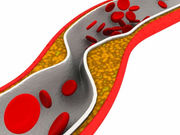Insufficient evidence for lipid screening in children; recommendation for statins varies with age, risk
TUESDAY, Dec. 22, 2015 (HealthDay News) — The U.S. Preventive Services Task Force (USPSTF) has found that current evidence is insufficient for determining the balance of benefits and harms of lipid disorder screening in children, while for statin use in adults, recommendations vary with patient age. These findings form the basis of two draft recommendation statements published online Dec. 21 by the USPSTF.
Researchers from the USPSTF reviewed the literature relating to screening for lipid disorders in children and adolescents younger than age 20 years without a known diagnosis of a lipid disorder. The researchers found that the current evidence was insufficient and the balance of benefits and harms of screening for lipid disorders could not be determined (I statement).
Researchers reviewed the literature relating to statin use for primary prevention of cardiovascular disease (CVD) in adults. The researchers recommended use of a low- to moderate-dose statin for CVD prevention for adults aged 40 to 75 years with one or more CVD risk factor and a 10-year cardiovascular event risk of 10 percent or greater (B recommendation). For patients with a 7.5 to 10 percent risk of 10-year CVD event, the recommendation depends on the individual patient’s situation (C recommendation). For adults aged 76 years and older without history of heart attack or stroke, the current evidence is insufficient to assess the balance of benefits and harms of statin use for CVD event prevention (I statement).
These findings form the basis of two draft recommendation statements, which are available for comment from Dec. 22 to Jan. 25.
Draft Recommendation Statement – Lipid Screen
Evidence Review
Comment on Recommendations
Draft Recommendation Statement – Statin Use
Evidence Review
Comment on Recommendations
Copyright © 2015 HealthDay. All rights reserved.








